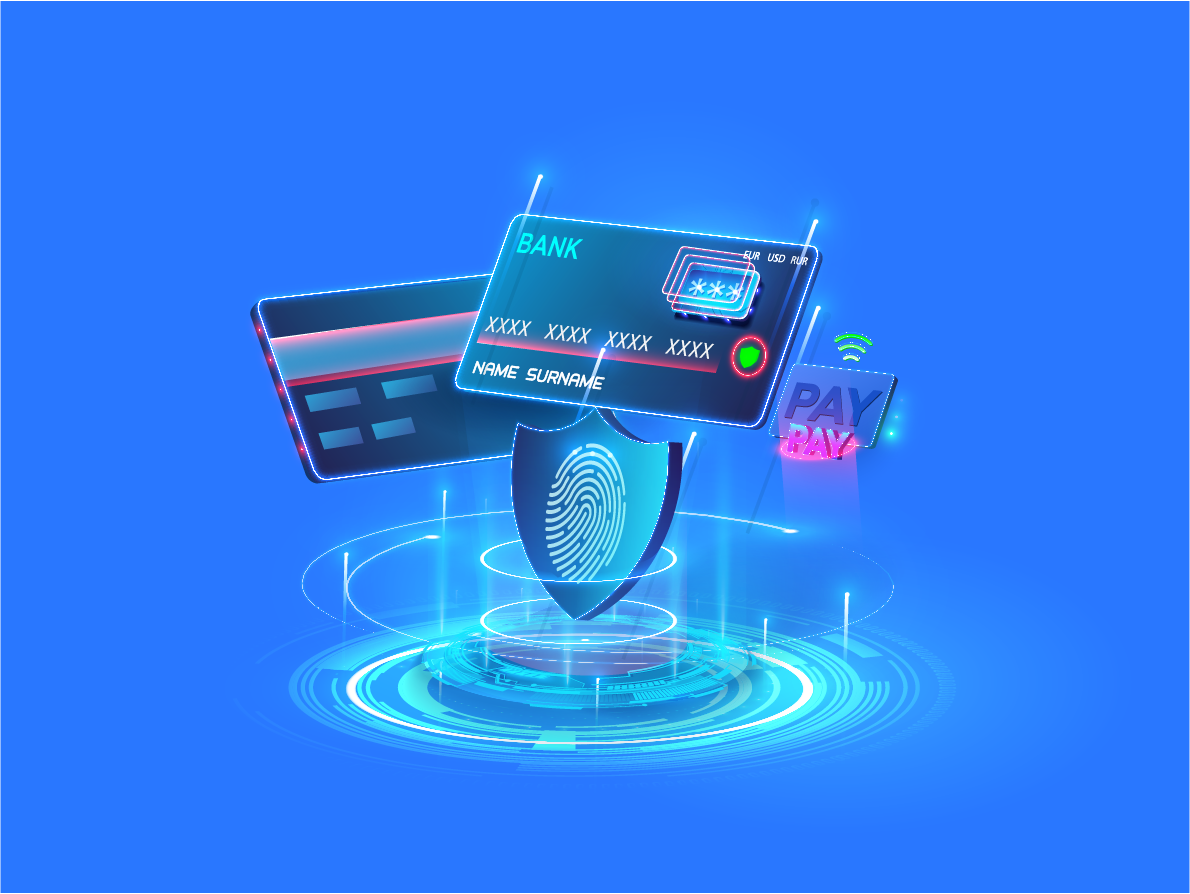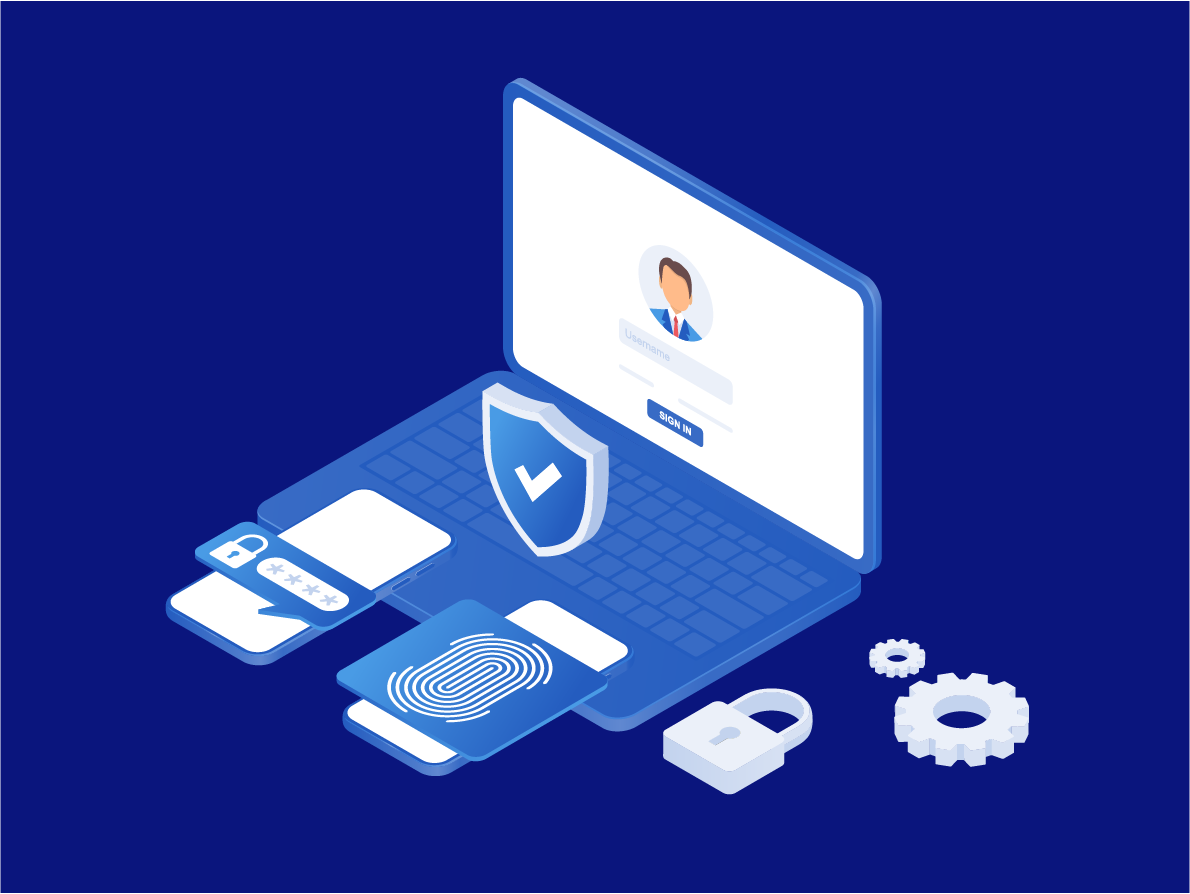
On May 5, 2022, the Fast Identity Online (FIDO) Alliance announced multiple US technology giants' support for their passwordless authentication standard. The joint decision made by Apple, Microsoft, and Google aims to accelerate tech companies' adoption of FIDO2 authentication protocols to replace passwords as the primary means of identity verification. This also seeks to increase awareness of how highly-secure, economical, and seamless the FIDO non-password standard is.
The FIDO authentication standard aims to provide consumers with secure and seamless logins for any online service or application. With it, users no longer need to create and recall complex passwords. Instead, they will use their biometric information to unlock a FIDO credential called a passkey when logging in to a website or app.
Account registration with FIDO works via the creation of a private key and public key pair. At account registration, the user will enter their biometric information onto their device and generate a private key that is then stored in the secure enclave of that device. Aside from frictionless onboarding, it also improves the company's security measures against potential data breaches, identity theft, and fraudulent activities rooted in weak passwords.
In recent years, knowledge-based login credentials, such as passwords, have become prone to guessing and phishing attacks. Shifting to FIDO2 passwordless authentication can be the best choice for tech industries to solve this concern. Businesses can expect robust security solutions like LoginID to offer their clients a safer and simpler access experience.
Downsides of Passwords
Nearly all websites, apps, and other online channels require users to create a unique combination of letters, numbers, and symbols as their login credentials. However, passwords themselves are an inconvenience and security concern.
Password fatigue is a widespread issue in the workplace, referring to the confusion and stress caused by remembering passphrases for multiple accounts. In April 2022, a study found that password fatigue has affected 87% of American employees. Gen. Z employees struggle the most as they grew up with technologies and use them more frequently than older generations.
Reliance on passwords also comes with a hefty price for organizations. On average, password problems cost companies $480 per employee in productivity loss per year. Forrester also reported that some of the largest US-based companies spend $1 million each year to finance support staff and tech infrastructures that handle employee and customer passwords.
Aside from being costly, passwords are also vulnerable to cyberattacks. Easy to remember passphrases, such as the person's family name or birthday, make it easier for hackers to guess the victim's login information. This practice increases the risk of financial and identity theft. Hackers can use stolen passwords to access other accounts with the same access identification in an attack called credential stuffing.
However, the 2021 Psychology of Passwords report revealed that 92% of users reuse the same password across numerous accounts despite the risks. The Federal Bureau of Investigation (FBI) also received 51,629 identity theft complaints amounting to $278 million in losses. These cybersecurity risks heighten the need to implement stronger authentication standards like FIDO2.
Understanding FIDO Authentication
The FIDO Alliance has developed a robust and faster authentication method that eliminates the use of the traditional password. FIDO authentication involves public-key cryptography, requiring customers to register in a single origin (site or application) and choose their preferred authentication method. The service will generate a public and private key pair on the user's device.
After going through the setup steps, the passkey is stored for later logins. When using FIDO-supported services, the user must take the following steps when logging in. First, they must correctly provide their username or email. They will then be prompted to enter their FIDO2 biometric credential to confirm that they are the real account owner. Finally, the server allows the user entry if all information is met.
The private keys and biometric data remain in the secure area of the user's device, never leaving. This means that fraudsters and thieves cannot access confidential information as the FIDO2 key is physically always on the individual's device. Deriving the specially-generated keys from the server is also impossible as passkeys are end-to-end encrypted. So the device plus biometrics is the only way to verify user identity.
Aside from security, FIDO2 passwordless authentication is also more efficient than logging in with passphrases. Users are verified through biometrics instead of creating complex password combinations to secure their accounts. With this feature, they only have to take a quick face, fingerprint, iris, or voice recognition procedure to confirm their identities.
Moreover, users can also log in to multiple FIDO-supported websites even while using browsers. Using FIDO2 WebAuthn or other application program interfaces (APIs), the relying party sends a biometric identification challenge to verify user credentials. If the user's biometrics match what they provided during registration, the relying party permits the sign-in attempt. Meanwhile, the client also receives a new passkey for future logins that no longer need the authenticator.
Companies need to look for a reputable e-security company that offers FIDO-compliant products and services to maximize these advantages. Employing these robust solutions can provide their customers with a fast, secure, and convenient verification during e-transactions.
LoginID Solutions for Meeting FIDO Standards
As cybersecurity threats rise and password management becomes more expensive and less secure, shifting to cutting-edge passphrase-free protocols is the new norm.. LoginID allows firms to give their customers user-friendly digital onboarding and ongoing strong authentication for highly-secure data protection.
LoginID's biometric digital signature eliminates the need for passwords that have become outdated in the past years. Biometrics is an ideal replacement for conventional login credentials, as fingerprints and face scans are unique to each individual and not easy to duplicate.
Additionally, the FIDO-certified solutions suite of LoginID can also improve tech support efficiency. Managing passwords will no longer be necessary, giving company staff more time to focus on work. LoginID's passwordless authentication is also easy to integrate across channels, platforms, and operating systems for seamless digital onboarding.
To learn how LoginID can help, you can:
- get in touch with our experts today at sales@loginid.io
- register for a free account to get immediate access to LoginID's authentication solution.
- check out our tutorial
- read our documentation
Sources:https://www.theregister.com/2022/05/05/microsoft-apple-google-fido/https://www.securityweek.com/tech-giants-unite-effort-scrap-passwordshttps://www.beyondidentity.com/blog/measuring-password-fatiguehttps://www.microsoft.com/security/blog/2021/09/15/the-passwordless-future-is-here-for-your-microsoft-account/https://www.weforum.org/agenda/2020/01/4-reasons-passwords-are-becoming-a-thing-of-the-past/https://www.ic3.gov/Media/PDF/AnnualReport/2021_IC3Report.pdfhttps://developers.google.com/identity/fidohttps://hideez.com/blogs/news/fido2-explained


